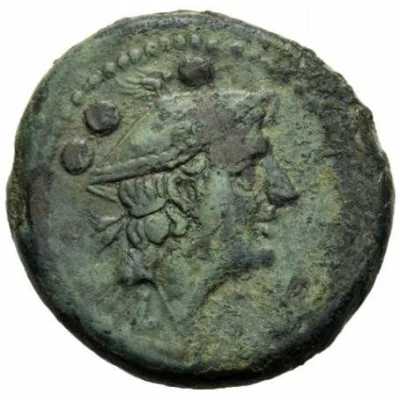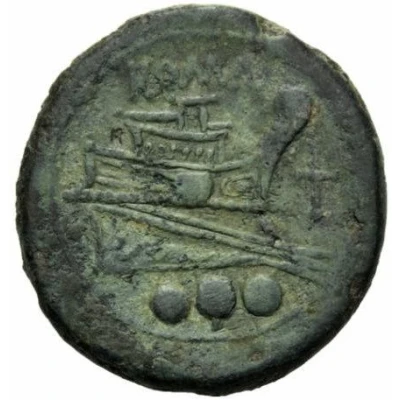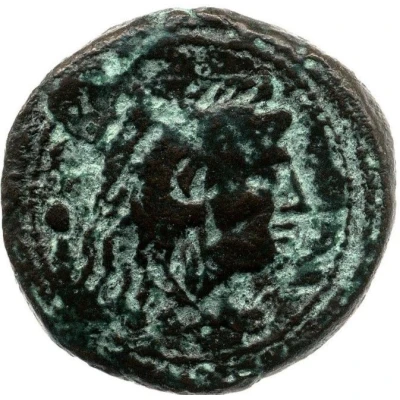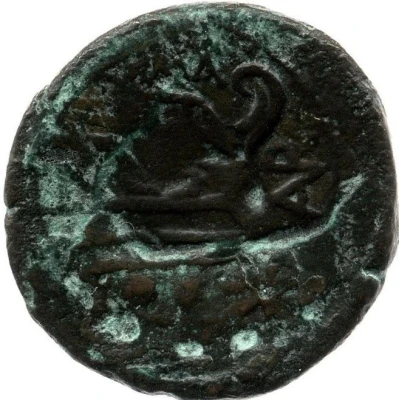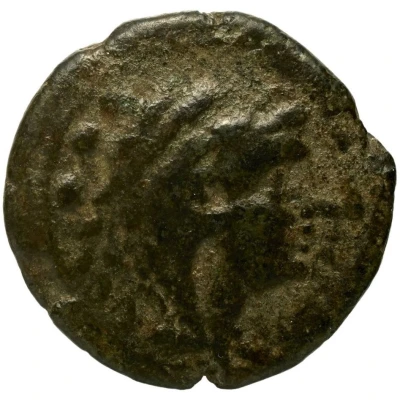
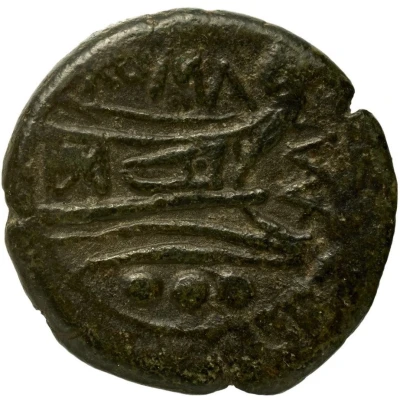

© Bibliothèque nationale de France / Gallica
Quadrans Publius Manlius Vulso; ROMA 210 BC
210 BC year| Bronze | 5.08 g | 20 mm |
| Issuer | Rome › Roman Republic (509 BC - 27 BC) |
|---|---|
| Issuing entity | Publius Manlius Vulso |
| Period | Republic (509 BC - 27 BC) |
| Type | Standard circulation coin |
| Year | 210 BC |
| Value | Quadrans (1⁄40) |
| Currency | Denarius of 10 Asses (221 – 141 BC) |
| Composition | Bronze |
| Weight | 5.08 g |
| Diameter | 20 mm |
| Shape | Round (irregular) |
| Technique | Hammered |
| Orientation | Variable alignment ↺ |
| Demonetized | Yes |
| Updated | 2024-10-06 |
| Numista | N#385475 |
|---|---|
| Rarity index | 100% |
Reverse
Prow, right. Below, denominational mark. Before, mark (monogram of MA). Above, legend.
Script: Latin
Lettering:
ROMA
MA
●●●
Unabridged legend:
ROMA
Publius Manlius Vulso
Translation: Rome
Comment
Publius Manlius Vulso was a member of the Roman patrician gens Manlia. In 210 BC he was praetor of Sardinia. (Wikipedia)Sardinian mint
Interesting fact
The Quadrans coin was used as a form of payment for Roman soldiers during military campaigns. It was valued at one-fourth of a denarius, which was the standard unit of currency in ancient Rome. The Quadrans coin was made of bronze and had a distinctive design that featured the image of a mythical creature called a "quadrant," which was a combination of a horse and a lion. The coin was issued during the reign of Publius Manlius Vulso, who was a Roman consul in 210 BC. Despite its small value, the Quadrans coin played an important role in the Roman economy and was used widely throughout the Roman Republic.
